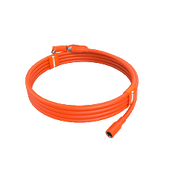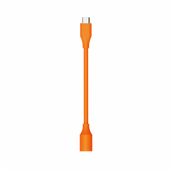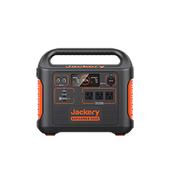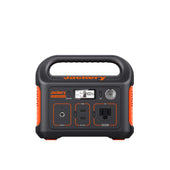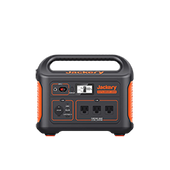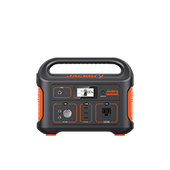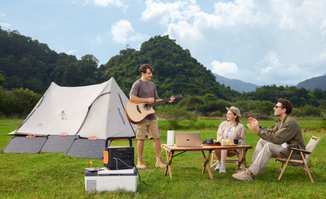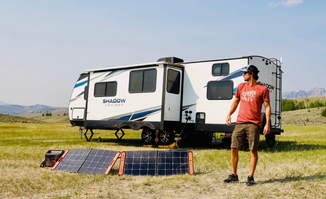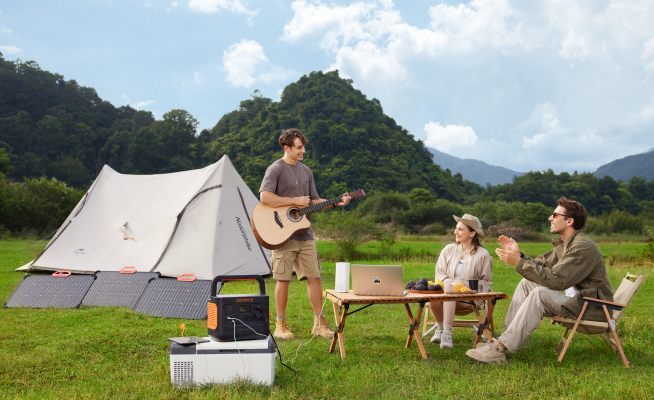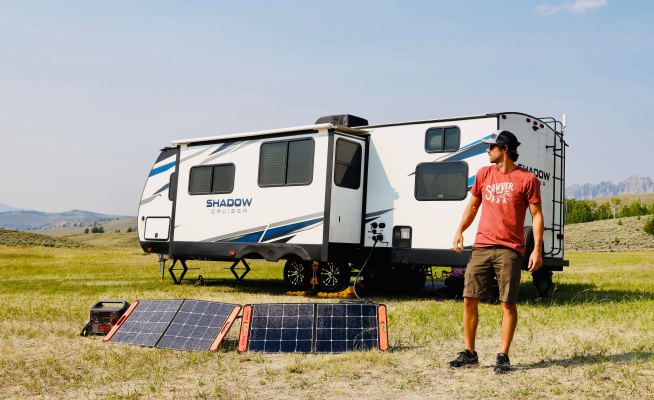Exploring the Best Portable Power Solutions for Off-Grid Living in Canada
Ever since the pandemic and the growing interest in sustainable and self-sufficient lifestyles, Canadians are embracing the concept of off-grid living. Far away from the chaos of city life, settled in the lap of nature, and cultivating a self-sustaining existence, living off the grid provides a lifestyle that promises self-reliance, independence, and reduced environmental footprints.
Off-grid living sounds like a dream come true for Canadians, reflected by the fact that the pricing of many cabins in Ferguson, BC, has skyrocketed from just a few hundred dollars to a whopping $20,000. However, off-grid living does not come without challenges. One significant challenge is a reliable power supply in remote and off-grid areas. Due to the absence of conventional grid electricity infrastructure, off-gridders have to arrange alternative sources of electricity. Therefore, this article explores the best portable power station solutions for off-grid living in Canada, empowering Canadians to harness energy in far remote areas with minimal impact on the environment.

The Appeal and Challenges of Off-Grid Living for Canadians
Nova Scotia, Alberta, Prince Edward Island, Quebec, and many others are the best places to live off the grid in Canada. All these places help to have an intimate connection with the natural world. But why is off-grid living becoming so appealing to Canadians? To address this, below are some of the major appeals that attract Canadians to pursue off-grid living:
- Self-Sufficiency and Independence:The most attractive appeal of off-grid living is the opportunity to achieve self-sufficiency and independence. While disconnected from centralized utilities like water and electricity, off-gridders take utility needs into their own hands. Generating their own power, growing their own food, and obtaining water from natural sources, off-gridders take control of their basic needs without relying on external systems. This helps to develop a sense of self-reliance and independence to live on their own terms.
- Connection with Nature:Another appealing aspect of living off-grid is connecting with nature, which is impossible in the hustle and bustle of city life. With a life without noise or pollution and a continuous touch of nature, off-gridders enjoy a peaceful and joyful lifestyle that nourishes the soul.
- Reducing Unnecessary Expenses:Off-grid living provides an excellent opportunity to cut unnecessary expenses. Firstly, the use of renewable power sources and alternative water sources eradicates the burden of utility bills. Secondly, off-grid living encourages more balanced spending, which helps to eliminate unnecessary purchases and wasteful habits. This helps to allocate resources towards more meaningful endeavors.
- Smaller Footprint:Considering the growing climate concerns, off-grid living helps off-gridders to show more commitment to minimizing their environmental footprint. Off-gridders not just rely on renewable energy sources, but they also recycle most of the essential products or materials they use, such as rainwater collection systems, greywater recycling systems, etc. By implementing these sustainable practices, off-gridders show more commitment to reducing their footprints and contributing to their role in climate control.
- Learn New Skills:Off-grid living also provides an opportunity to learn new skills and knowledge. When off-gridders have to think out of the box for most of their basic needs, they develop a diverse range of practical skills, such as creativity, problem-solving, self-reliance, etc. This helps them become more productive, focused, and committed, promoting a more fulfilling and purpose-driven lifestyle.
Besides the appeals attracting Canadians to have off-grid living, there are challenges too. Some of the main challenges associated with off-grid living are as follows:
- Harsh Weather Conditions:Canada is a country known for its diverse weather and challenging climates. From the need for constant heating in below-zero winters and heavy snowfall to enduring extreme summers and unpredictable weather patterns, the weather conditions in Canada pose a significant challenge for an off-grid lifestyle.
- Food Storage:With limited or no access to grocery stores, off-gridders face the crucial task of ensuring reliable food storage to sustain them for a longer period. Without the convenience of regular shopping trips, they must employ various preservation methods to store and extend the shelf life of their food supplies. Even using an off-grid refrigerator also requires a continuous supply of electricity, which is also sometimes challenging to maintain.
- Financial Concerns:Off-grid living also requires proper financial planning and budgeting. The initial setup cost is significant, while the ongoing maintenance and upgrades are additional expenses.
- Seasonal Demands:Living off the grid also requires addressing seasonal demands, which can significantly influence the daily operations of off-gridders. These seasonal demands mostly center around energy generation, food production, lifestyle adjustments during different weather conditions, recreational activities, and others.
- Emergency Concerns:Off-grid living also disconnects off-gridders from emergency services. They need to plan how to tackle emergencies, such as extreme weather events, power outages, or medical emergencies.
All the above challenges are not meant to discourage off-grid living, as when there is a will, there's a way. In fact, there are many stories of off-grid Canadians who have managed to enjoy the self-reliant and sustainable lifestyle of living off-grid by smartly overcoming off-grid obstacles.
If you also have prepared your mind to test out an off-grid living, let's help you with one of the main challenges of living off the grid, i.e., reliable power supply.
Off-Grid Power Solutions & Their Pros and Cons
Off-grid living disconnects individuals from the chaos of modern life, but it does not imply a complete abandonment of modern conveniences and reverting to earlier-era lifestyles. That's why having a reliable power solution is necessary for off-grid living to charge or power essential appliances, such as smartphones, laptops, kitchen appliances, TV, heaters, etc.
When it comes to off-grid living, the market offers various power solutions. Two of the popular solutions are solar power and wind turbines, as they both offer renewable energy supply. So, let's explore more about these power solutions and their pros and cons:
Solar Power Systems
A solar power system is a system that harnesses solar energy from the sun using solar panels and converts it to usable electricity. This system comprises a solar panel, charge controller, batteries, and inverter.
In this system, off-gridders place solar panels in a suitable spot to receive sunlight. The charge controller regulates the electricity flow from the panels to the batteries, where it is stored as DC energy. Afterward, the inverter takes the DC output from the battery, converts it to AC, and power appliances. This way, solar power systems can continuously generate electricity when sunlight is available, while the energy stored in the battery is usable for powering appliances.
Pros
- Renewable Energy:Solar power provides a clean and renewable energy source that is freely available anytime, anywhere.
- Low Costs:A solar power system might require some initial investment but requires minimal maintenance afterward. This saves significant energy costs in the long term.
- Energy Independence:A solar power system empowers off-gridders to generate their electricity, giving them complete energy independence.
- Eco-Friendly:A solar power system casts negligible environmental impact, as it does generate noise or release greenhouse gases.
- Scalability:Solar power systems are easily scalable to fulfill more power needs.
Cons
- Reliance on Sunlight:A solar system can only generate electricity when sunlight is available.
- Initial Cost:A solar power system requires substantial initial cost, especially for large power needs.
Wind Power Systems
A wind power system also harnesses natural resources to generate electricity, but this time it is the wind instead of solar energy. It uses wind turbines to capture the kinetic energy from the wind and convert it into electricity. This system comprises a wind turbine, charge controller, batteries, and inverter.
In this system, off-gridders place the wind turbine in a suitable location having consistent wind speeds. When the wind blows, the turbine blades rotate and generate kinetic energy. The generator housed within the turbine converts the kinetic energy into electrical energy. The electrical energy is sent to the charge controller that regulates the charging of batteries. Afterward, the inverter converts the DC energy to AC to power appliances. This way, the wind power system also uses free natural energy to generate electricity.
Pros
- Continuous Power Generation: A wind power system can generate electricity during both day and night as long as the wind consistently blows at an optimal speed.
- Independent Power Generation: A wind power system makes off-gridders independent from grid supply and hassustainable power generation continuously.
- Environmental-Friendly: A wind power system is free from any toxic emissions.
- Scalability:A wind power system is also easily scalable to fulfill almost any power needs.
Cons
- Reliance on Wind:Wind turbines are unable to generate any supply if the wind stops blowing.
- Location Concerns:A wind power system is highly dependent on consistent and strong winds, which requires off-gridders to carefully access wind resources before finalizing the location.
- Initial Cost:Installing a wind power system requires significant upfront costs.
- Visual and Noise Impact:Wind turbines are larger and topper in size, making a visual impact on the surrounding. Moreover, the movement of turbines also generates noise.
Overall, wind power systems are also an effective power source for off-gridders, giving them an independent and continuous electricity supply. However, solar power systems seem a better option than wind systems due to their compact size, easy installation, and everyday access to solar energy.

Portable Power Stations: Emerging Off-Grid Power Solution
For added convenience and versatility to fulfill off-grid power needs, portable power stations are becoming a new favorite of off-gridders. Portable power stations are all-in-one power solutions that include a battery, inverter, and input/output ports inside a single compact structure.
Simply put, a portable power station is similar to a solar power system with more emphasis on portability and lightweight design. The battery inside a portable station is chargeable through a solar panel, AC wall outlet, or car's DC port. Besides that, the power station offers multiple output ports, including AC, DC, and USB ports, to efficiently power small to large electronic appliances.
The best part about portable power stations is their mobility. The portable design makes them easy to carry to any location during off-grid living. In addition, power stations also feature advanced features such as an LCD display, battery management system, surge protection, and multiple safety mechanisms. In short, portable power stations are becoming indispensable for off-gridders seeking a reliable, versatile, and user-friendly power solution.
Best Portable Power Stations for Living Off the Grid in Canada
Portable power stations are the best choice to address power needs for off-grid living. Still, off-gridders must pick suitable portable power stations that meet their specific requirements and suit the unique conditions of off-grid living in Canada.
When looking for a portable power station, the power rating, battery capacity, input/output ports, weight, durability, and other aspects are important to consider. However, to ease this hassle, we have shortlisted a few top-notch portable power stations that can provide the best performance for off-grid living in Canada:
1. Jackery Explorer 1500 Pro Portable Power Station
Jackery Explorer 1500 Pro Portable Power Station is a 1800W (3600W peak surge) powerful off-grid power station that can power appliances from smartphones, laptops, and TVs to blenders, coffee makers, and microwaves. With an ergonomic, lightweight design, including a 1512Wh capacity battery, the Jackery Explorer 1500 Pro Portable Power Station provides a reliable and versatile power solution for off-grid living in Canada.

The key features of the Jackery Explorer 1500 Pro Portable Power Station include:
- 1800W (3600W surge peak) power
- 3 charging methods (solar panels, AC adapters, and car adapters)
- Fully recharged in just 2hours
- Simultaneous charging of 8 devices with multiple output ports (3x AC 1800W, 2x USB-A 18W, 2x USB-C 100W, and 1x car 12V DC port)
- Pure sine wave output
- 48lbs (17kg) lightweight design
- Wide working temperature (14-104°F / -10-40°C)
- 46dB quiet operations
- Shock-resistantand fire-retardant
- 12 levels of protection against short circuits, high temperatures, and overvoltages
Overall, whether its lightweight, compact design, multiple output ports, fast recharging, or noise-free operations, all of the Jackery Explorer 1500 Pro Portable Power Station's specs make it an ideal companion for living off the grid.
2. Jackery Explorer 2000 Pro Portable Power Station
The Jackery Explorer 2000 Pro Portable Power Station is a 2200W portable power station that can power all imaginable off-grid appliances for a longer duration with its massive 2160Wh battery capacity.
Designed with off-grid living in mind, the Jackery Explorer 2000 Pro Portable Power Station aims to be the ultimate power supply solution. It offers a continuous and reliable source of electricity, allowing off-gridders to enjoy a grid-free lifestyle without sacrificing their power needs. Furthermore, what sets it apart is its ability to fully recharge within 5.5 hours with 6 SolarSaga 100W solar panels.

The key features of the Jackery Explorer 2000 Pro Portable Power Station include:
- 2200W (4400W surge peak) power
- 3 charging methods (solar panels, AC wall outlets, and car DC ports)
- Simultaneous charging of 8 devices with multiple output ports (3x AC 2000W, 2x USB-A 18W, 2x USB-C PD 100W, and 1x car 12V DC port)
- 43 lbs weight with foldable handle for easy handling
- 10 years battery life with 1000 cycles to 80%+ capacity
- 5 years warranty
- Pure sine wave output
- Wide working temperature (14-104°F / -10-40°C)
- Smart screen with 18 kinds of working states
- Advanced built-in battery management system (BMS)
Looking at the powerful specs of the Jackery Explorer 2000 Pro Portable Power Station, it does serve as the complete power source to power any off-grid appliances for an extended period.
3. Jackery Explorer 3000 Pro Portable Power Station
A more powerful off-grid power station becomes essential if off-grid living involves multiple members or more extensive power requirements. In such cases, the Jackery Explorer 3000 Pro Portable Power Station proves to be a reliable solution to meet the demands of power-hungry off-grid setups.
One of the standout features of the Jackery Explorer 3000 Pro Power Station is its impressive battery capacity. With a massive capacity of 3024 Wh, the power station can provide enough electricity to run various equipment and appliances. Additionally, the versatility of the Jackery Explorer 3000 Pro Power Station is further enhanced by its multiple charging options. It has a total of nine different charging ports, including 2 x USB-C (100W), 2 x USB-A (18W), 1 x Car 12V DC port, and 3 x AC (20A). In terms of security, the Jackery Explorer 3000 Pro Power Station is equipped with advanced BMS technology. It has built-in protection against overcharging, over-discharging, and short circuits to keep the power station and your equipment safe.
The key features of the Jackery Explorer 3000 Pro Power Station include:
- Large capacity up to 3024Wh
- 3 charging methods (solar panels, AC adapters, and car adapters)
- Fast charging in 6-7.5 hours
- 93lbs (29 kg) weight for easy handling
- 5 years warranty
- Pure sine wave output
- Wide working temperature (-4-104°F / -20-40°C)
- Advanced built-in battery management system (BMS)
Canadians are showing more interest in having short-duration or long-term off-grid living to refresh their souls and have a closer connection with nature. However, making off-grid living a pleasant experience does require the need of reliable power solutions.
Solar and Wind power systems seem reliable renewable power sources for living off the grid, but portable power stations, solar panels, and solar generators show more promising potential due to their convenience and versatility. For instance, Jackery's dedicated portable power stations for off-grid living provide high-capacity battery systems, multiple input/output ports, and plenty of other advanced features to enhance off-gridders living experience. So, explore Jackery's product line of off-grid portable power stations to have a more self-sufficient and eco-friendlier off-grid lifestyle.
Disclaimer:
The runtime mentioned for appliances powered by Jackery is for reference only. Actual runtime may vary under different conditions. Please refer to real-world performance for accurate results.







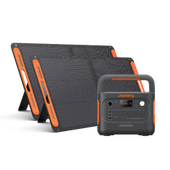



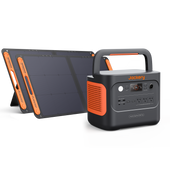

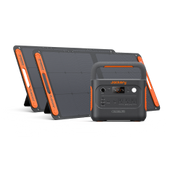
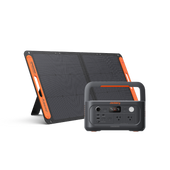
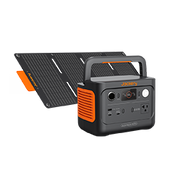
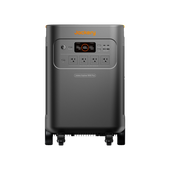

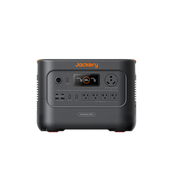
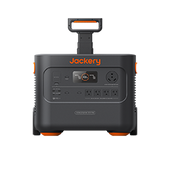
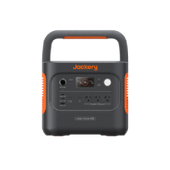
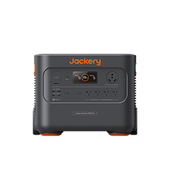

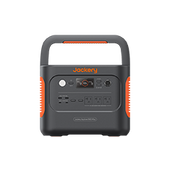
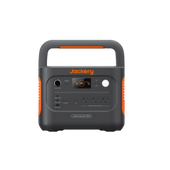
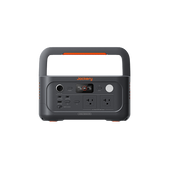

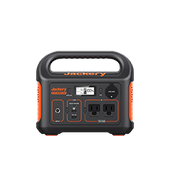
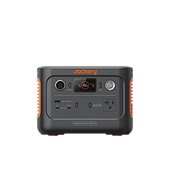
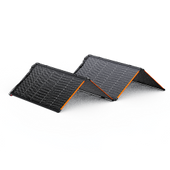
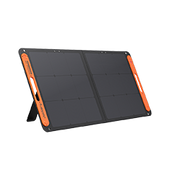


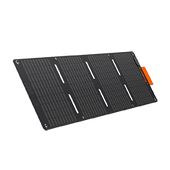
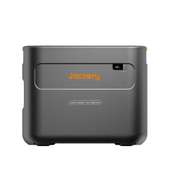
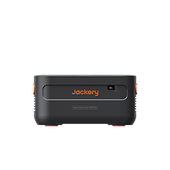
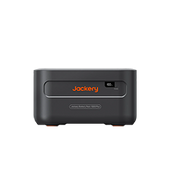
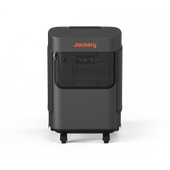
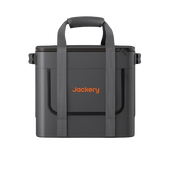
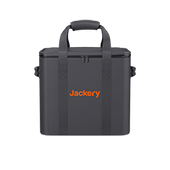
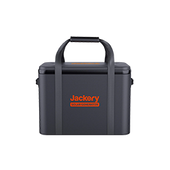
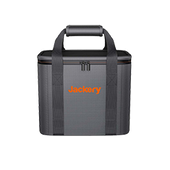
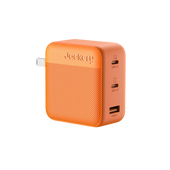
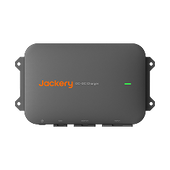
![[Add-on] Jackery Manual Transfer Switch for Explorer 5000 Plus](http://ca.jackery.com/cdn/shop/files/add-on-jackery-manual-transfer-switch-for-5000-plus-240V.webp?v=1757043692&width=170)
